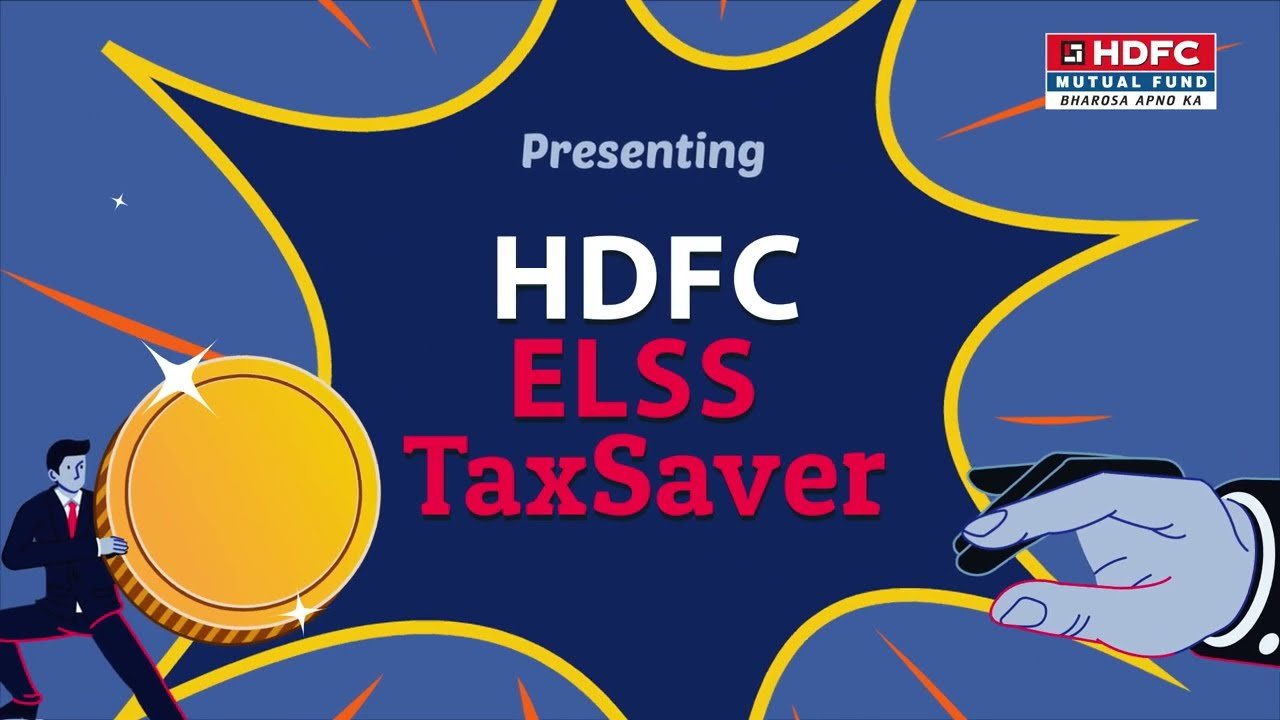Navigating Your Taxes: Comprehensive Guide for US Residents.
Living outside the US as an American citizen means dealing with a unique set of tax rules. It can feel a bit overwhelming at first, trying to figure out what you owe and what forms you need. But honestly, it’s not as scary as it sounds. Most people who live abroad don’t end up paying extra US taxes. This guide is here to break down how the system works, what protections are available, and what you need to do to stay on the right side of the IRS. We’ll cover the basics and some common worries people have about their taxes when living overseas.
Thank you for reading this post, don't forget to subscribe!Key Takeaways
- US citizens must file taxes no matter where they live in the world.
- There are ways to avoid paying taxes twice on the same money.
- Expats automatically get extra time to file their taxes.
- You have to report foreign bank accounts and assets through FBAR and FATCA.
- Tax treaties between countries can change your tax situation.
Understanding Your US Taxes as an Expat

So, you’re living outside the US, but Uncle Sam still wants to know about your income. It’s a bit of a unique situation, right? The US is one of the few countries that taxes its citizens based on citizenship, not where they live. This means even if you’re sipping coffee in Paris or working in Tokyo, you still have to deal with US taxes. It sounds complicated, and honestly, it can be, but understanding the basics is the first step to making it less of a headache.
Citizenship-Based Taxation Explained
This is the core idea: if you’re a US citizen or a green card holder, you’re generally on the hook for US taxes on your worldwide income, no matter where you are. Most other countries only tax people who live there, but the US system says that as a citizen, you have a duty to contribute. It’s been this way for a long time, and the thinking is that you still benefit from being a US citizen, like the right to return home. So, yes, you have to file, even if you don’t owe anything. It’s important to keep up with your filing obligations to avoid issues down the road. You can find general information on the International taxpayers page on the IRS website.
Key Concepts: Residency, Domicile, and Double Taxation
When you’re living abroad, a few terms become really important. Your tax residency is usually about how much time you spend in the US. Then there’s domicile, which is basically your permanent home. This can get tricky because even if you’re living overseas, your domicile might still be considered the US, which can affect things like state taxes. The other big one is double taxation. This happens when the same income gets taxed by both the US and the country you’re living in. Thankfully, the US has agreements, called tax treaties, with many countries to help sort this out and prevent you from paying taxes twice on the same money.
Why Filing US Taxes Abroad is Crucial
Look, nobody enjoys doing taxes, but when you’re living abroad, it’s even more important to get it right. Filing your US taxes on time, even if you don’t owe anything, keeps you in good standing with the IRS. Missing deadlines or not reporting foreign income can lead to some pretty hefty penalties. Plus, there are ways to reduce your US tax bill, like the Foreign Earned Income Exclusion or the Foreign Tax Credit, but you can only take advantage of these if you file. It’s about staying compliant and making sure you’re not missing out on ways to save money.
It’s easy to think that living outside the US means you’re off the hook for US taxes, but that’s not the case. The US tax system is built on citizenship, so your filing obligations follow you wherever you go. Staying on top of this is key to avoiding future problems and making the most of the benefits available to expats.
Leveraging Protections for Your Foreign Income
Living and working abroad is an exciting adventure, but it also means you’re still on the hook for U.S. taxes. The good news is Uncle Sam knows this can get complicated, so there are ways to avoid paying taxes twice on the same income. It’s all about using the right tools to reduce your U.S. tax bill.
The Foreign Earned Income Exclusion Explained
This is a big one for many expats. The Foreign Earned Income Exclusion, or FEIE, lets you exclude a certain amount of your foreign earnings from U.S. taxes. For 2024, you can exclude up to $126,500 of income you earned while living and working overseas. To qualify, you generally need to meet either the Bona Fide Residence Test (meaning you’ve established your home in a foreign country for at least a full year) or the Physical Presence Test (you’ve been physically present in foreign countries for at least 330 full days in any 12-month period).
It’s important to remember that the FEIE only applies to earned income – think salaries and wages from your job. It doesn’t cover things like investment income or rental income. You claim this exclusion by filing Form 2555 with your tax return.
Utilizing the Foreign Tax Credit
Another powerful way to reduce your U.S. tax liability is the Foreign Tax Credit (FTC). If you’ve paid income taxes to a foreign country, you can often use those taxes to offset your U.S. tax bill, dollar for dollar. This can be especially beneficial if you live in a country with higher income tax rates than the U.S., or if your income exceeds the FEIE limit.
For example, if you owe $10,000 in U.S. taxes and paid $15,000 in income taxes to your host country, you could potentially use the FTC to reduce your U.S. tax liability to zero. You can’t get a refund for the excess, but it’s still a great way to avoid paying taxes twice. You’ll use Form 1116 to claim the FTC.
Here’s a quick look at when each might be better:
| Situation | Best Option | Reason |
|---|---|---|
| Low-tax country | FEIE | Excludes income, simpler if income is below the limit. |
| High-tax country | FTC | Can offset more tax if foreign taxes paid are high. |
| Income above FEIE limit | FTC | FEIE doesn’t cover income above the exclusion amount. |
| Significant investment income | FTC | FEIE doesn’t apply to investment income; FTC can help with taxes on it. |
Combining Exclusions and Credits for Maximum Benefit
Sometimes, the best strategy isn’t choosing between the FEIE and the FTC, but using them together. While you generally can’t use both on the exact same income, you might be able to use the FEIE for your earned income and the FTC for other types of income, like investment income, or for the portion of your earned income that exceeds the FEIE limit.
Careful planning is key here. The choice between the FEIE and FTC, or how to combine them, can significantly impact your overall tax burden. It often depends on your specific income sources, the tax rates in your country of residence, and your overall financial picture.
Don’t forget about the Foreign Housing Exclusion or Deduction, which can be claimed on the same Form 2555 as the FEIE. This allows you to exclude or deduct certain housing expenses that are above a base amount, further reducing your taxable income. It’s all about making sure you’re not overpaying your taxes just because you live abroad.
Navigating Filing Requirements and Deadlines
Okay, so you’re living abroad and trying to figure out your US taxes. It can feel like a lot, but knowing the deadlines and what you need to file is half the battle. Let’s break it down.
Mandatory Filing Thresholds for Expats
Even if you’re living overseas, you still have to file US taxes if your income reaches a certain level. This applies to everyone, regardless of where you live. The IRS sets these thresholds each year, and they depend on your filing status (single, married filing jointly, etc.) and whether you have dependents. Generally, if your gross income is more than the standard deduction for your filing status, you need to file. It’s a good idea to check the IRS website for the most current figures each tax year, as they can change.
Automatic Filing Extensions for Overseas Residents
Good news here! If you’re living outside the US and Puerto Rico on the regular tax deadline (usually April 15th), you automatically get an extension to file. This gives you an extra two months, pushing your filing deadline to June 15th. You don’t need to file any special forms to get this automatic extension. However, it’s important to remember that this extension is only for filing your return, not for paying any taxes you might owe. To avoid penalties and interest, you should still estimate and pay your tax liability by the original April deadline.
If you need even more time, you can file Form 4868, Application for Automatic Extension of Time To File U.S. Individual Income Tax Return. This grants you an additional four months, moving your deadline to October 15th. Remember, this is still an extension to file, not to pay.
Understanding FBAR and FATCA Reporting
Beyond your regular income tax return, there are other important reports you might need to file if you have foreign financial accounts. The big ones are the Foreign Bank and Financial Accounts Report (FBAR) and the Foreign Account Tax Compliance Act (FATCA) forms.
- FBAR (FinCEN Form 114): You need to file this if the total value of all your foreign financial accounts exceeded $10,000 at any point during the year. The deadline for FBAR is the same as your tax return deadline, including extensions. So, if you get the automatic extension to October 15th for your taxes, your FBAR is also due then. You don’t need to file a separate extension for FBAR; it’s automatic.
- FATCA (Forms 8938, 8966, etc.): These forms are filed with your tax return. The threshold for filing Form 8938 is generally higher than for FBAR and depends on whether you live in the US or abroad. If you’re living overseas, you typically need to file Form 8938 if the total value of your specified foreign financial assets was more than $200,000 on the last day of the tax year, or more than $300,000 at any time during the year (these amounts can be higher if you’re married filing jointly).
Failing to file these reports can lead to some pretty hefty penalties, so it’s really important to be aware of these requirements if you have foreign accounts.
It’s easy to get caught up in the excitement of living abroad, but staying on top of your tax obligations is key to avoiding future headaches. Make sure you know your deadlines and what forms you need to submit. Even if you think you don’t owe anything, filing might still be required.
Addressing Common Expat Tax Concerns
It’s totally normal to have questions when you’re living abroad and dealing with US taxes. A lot of people worry about owing a ton of money or getting hit with huge penalties, but honestly, it’s often not as bad as you might think. The US tax system for expats has some built-in protections that can really help.
What If You’re Behind on Filing Your Taxes?
First off, don’t panic if you’ve fallen behind. The IRS has programs like the Streamlined Filing Compliance Procedures. These are designed for people who didn’t file because they genuinely didn’t know they had to, or they misunderstood the rules. If your non-compliance wasn’t intentional, you can usually catch up without facing devastating penalties. Generally, you’ll need to:
- File your last three years of tax returns.
- Submit six years of foreign bank account reports (FBAR).
- Certify that you didn’t intentionally avoid filing.
- Pay any taxes that are actually owed, which for many expats is zero after applying exclusions and credits.
It sounds like a lot, but these procedures are there to help you get back on track. Many expats find that once they file correctly, they don’t owe anything.
Dispelling Myths About Expat Tax Liabilities
Let’s clear up some common worries. A big one is, “I’ll owe massive back taxes.” The truth is, most expats actually owe $0 in US taxes on their foreign income because of things like the Foreign Earned Income Exclusion and the Foreign Tax Credit. Another fear is, “The penalties will destroy me financially.” While penalties can happen, the IRS has amnesty programs, and many applications for penalty relief are approved. For example, in 2023, a high percentage of applications were approved, leading to millions of dollars in waived penalties. Finally, “This is too complicated for me.” Yes, expat taxes have their complexities, but the core rules and the main tools used to manage them are fairly predictable for most situations. Understanding these basic protections is key to managing your tax obligations effectively. You can find more information on US citizens living abroad.
The Role of Tax Treaties in Your Obligations
Tax treaties between the US and other countries are super important for expats. Their main goal is to prevent you from being taxed twice on the same income – once by the US and again by your country of residence. These agreements lay out which country has the primary right to tax certain types of income. For instance, a treaty might reduce or even eliminate taxes on specific income sources. It’s really worth looking into the treaty between the US and the country where you’re living to see exactly how it affects your tax situation. These treaties can significantly impact your overall tax liability and are a vital part of avoiding double taxation.
Essential Resources for Expatriate Taxpayers

Living abroad as a US citizen means you still have to deal with US taxes. It can feel like a lot, but there are resources to help you sort it all out. You don’t have to figure this out alone.
Leveraging IRS Resources for International Taxpayers
The Internal Revenue Service (IRS) actually has a lot of information specifically for people living outside the US. Their website is a good place to start. They have a section dedicated to international taxpayers that acts as a central hub for all sorts of expat tax info. You can find links to forms, publications, and helpful tools there. If you’re eligible, the IRS Free File program can help you prepare your taxes for free. They also have an Interactive Tax Assistant tool that can give you personalized guidance on specific tax questions you might have.
Exploring Other Government and Embassy Services
Beyond the IRS, other government agencies offer support. The Social Security Administration has programs for those living internationally. The State Department also provides resources for US citizens abroad. Don’t forget your local US embassy or consulate; they can often assist with certain services or point you in the right direction. Sometimes, the Taxpayer Advocate Service can also help if you’re having serious issues with the IRS.
The Importance of Professional Expat Tax Services
While government resources are helpful, sometimes you just need an expert. Dealing with foreign income, foreign bank accounts, and different country tax rules can get complicated fast. Hiring a tax professional who specializes in expat taxes can save you a lot of headaches and potentially money. They understand the ins and outs of things like the Foreign Earned Income Exclusion and the Foreign Tax Credit, and can help you make sure you’re using them correctly. Many professionals can also help you get caught up if you’ve fallen behind on filing, often without the severe penalties you might expect. They can also help with reporting requirements like FBAR and FATCA. Finding the right professional means you can focus more on enjoying your life abroad and less on tax worries. You can find services that offer clear pricing, so there are no surprises.
It’s important to keep good records of your foreign income and accounts. This makes filing much easier and helps you take advantage of any benefits you’re entitled to. Staying organized is key to managing your tax obligations smoothly.
Here are some common services professionals offer:
- Tax preparation for federal, state, and foreign returns.
- Guidance on FBAR and FATCA compliance.
- Tax planning to help you save money.
- Help with IRS audits or notices.
- Catching up on past due filings.
Remember, tax laws change, so staying informed is a good idea. If you’re looking for information on US taxes for people earning income in the US or US citizens earning abroad, the IRS has resources available at international taxpayers.
State Tax Obligations While Living Abroad
Even though you’re living overseas, you might still have to deal with state taxes back in the U.S. It’s not always straightforward, and a lot depends on where you last lived and what you’ve done to officially cut ties with that state. Your state tax residency is the big question here.
Determining Your State Tax Residency
Figuring out if you’re still a resident of a U.S. state can be tricky. Most states look at a few things:
- Domicile: This is basically your permanent home, the place you intend to return to. If you haven’t established a new permanent home elsewhere, your old state might still consider you domiciled there.
- Physical Presence: How much time did you spend in the state before you left, and have you spent any significant time there since?
- Intent: What actions have you taken that show you intend to live abroad permanently or establish residency in a new place? This could include things like selling your house, getting a driver’s license in your new country, or registering to vote there.
It’s important to know that some states are more aggressive than others in trying to keep you on their tax rolls. If your former state still considers you a resident, you may owe taxes on your worldwide income, including foreign earnings. This typically occurs if you haven’t officially severed ties with the state, such as by establishing residency elsewhere or taking specific actions to end your residency. Check your former state’s rules.
Factors Affecting Continued State Tax Liability
Several factors can keep you on the hook for state taxes:
- Maintaining Ties: Keeping a home, owning property, or having family members in your home state can signal that you haven’t truly left.
- Frequent Visits: Spending a lot of time in your home state, even for vacations, can sometimes be interpreted as maintaining residency.
- No Formal Change of Residency: Simply moving abroad without taking steps to formally change your residency status in the U.S. can leave you in a gray area.
- Income Sources: If you still have income-generating assets or business ties within a particular state, that state might assert taxing authority.
It’s easy to think that once you’re out of the country, your state tax worries disappear. But that’s often not the case. States have their own rules for residency, and they can be quite persistent in collecting taxes from former residents if they believe you haven’t properly ended your ties.
Steps to Establish Residency in a New Location
To avoid unexpected state tax bills, you might want to formally establish residency in a new location, whether that’s a different U.S. state or your new country abroad. Here are some common steps:
- Declare a New Domicile: Make a clear statement of intent to make a new place your permanent home.
- Obtain Local Identification: Get a driver’s license or state ID from your new location.
- Register to Vote: Register to vote in your new jurisdiction.
- Open Local Bank Accounts: Conduct your financial affairs through local banks.
- Update Legal Documents: Change your mailing address on all important documents, including wills and insurance policies.
- File State Taxes: If establishing residency in another U.S. state, file taxes there and take steps to formally notify your previous state of your change in residency.
Wrapping It Up: Your Tax Journey Ahead
So, we’ve gone through a lot of information about US taxes, especially if you live abroad. It can seem like a lot at first, and maybe a little scary. But remember, the US tax system has ways to help you avoid paying taxes twice, like the Foreign Earned Income Exclusion and the Foreign Tax Credit. Most people find that once they file correctly, they actually owe nothing. Keeping good records is key, and don’t forget about those FBAR and FATCA forms if they apply to you. Tax rules can change, so staying informed is a good idea. If things still feel confusing, there are people who can help make sure you’re doing everything right. You’ve got this!
Frequently Asked Questions
Do I really have to file US taxes if I live overseas?
Yes, as a US citizen or green card holder, you must file US taxes no matter where you live. The good news is that there are special rules and benefits, like the Foreign Earned Income Exclusion and the Foreign Tax Credit, that often mean you won’t owe any US taxes on your foreign income. Filing is how you claim these benefits!
What’s the deal with citizenship-based taxation?
Unlike most countries that tax based on where you live, the US taxes its citizens and green card holders based on their citizenship. This means even if you live and earn money in another country, the US still wants you to report your worldwide income. But don’t worry, there are ways to avoid paying taxes twice.
How can I avoid paying taxes twice?
The US offers two main ways to help you avoid paying taxes twice on the same income. The Foreign Earned Income Exclusion lets you skip US taxes on a certain amount of your foreign earnings (up to $126,500 for 2024). The Foreign Tax Credit lets you subtract taxes you’ve already paid to a foreign country from your US tax bill. Many people use both!
What if I haven’t filed US taxes in years while living abroad?
If you haven’t filed and are worried, take a deep breath! The US has programs like the Streamlined Filing Compliance Procedures. These can help you catch up on your taxes without facing big penalties, especially if you didn’t intentionally avoid filing. It usually involves filing your last three returns and six years of foreign account reports.
Are there special deadlines for expats?
Yes! US expats automatically get an extra two-month extension to file their federal taxes, making the deadline June 15 instead of April 15. There are also extensions for reporting foreign financial accounts (FBAR), usually until October 15.
Do I still have to worry about state taxes when I live abroad?
It’s possible. Moving overseas doesn’t automatically end your state tax obligations. You might still be considered a resident of your last US state if you haven’t officially established residency elsewhere. Things like keeping a driver’s license or voting in that state can affect your state tax situation.













